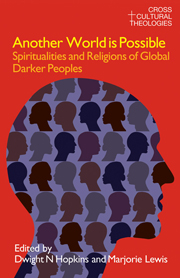Book contents
- Frontmatter
- Dedication
- Contents
- Acknowledgements
- Contributors
- Introduction
- Part I India
- Part II Japan
- Part III Australia
- Part IV Hawaii
- Part V England
- Part VI South Africa
- Part VII Botswana
- Part VIII Zimbabwe
- 12 Ritual and Spirituality among the Shona People
- 13 Economic “Shortage” as a Theologico-political Problem in Zimbabwe
- Part IX Ghana
- Part X Cuba
- Part XI Jamaica
- Part XII Brazil
- Part XIII USA
- Endnotes
- Select Bibliography
- Index of Subjects
- Index of Names
12 - Ritual and Spirituality among the Shona People
from Part VIII - Zimbabwe
- Frontmatter
- Dedication
- Contents
- Acknowledgements
- Contributors
- Introduction
- Part I India
- Part II Japan
- Part III Australia
- Part IV Hawaii
- Part V England
- Part VI South Africa
- Part VII Botswana
- Part VIII Zimbabwe
- 12 Ritual and Spirituality among the Shona People
- 13 Economic “Shortage” as a Theologico-political Problem in Zimbabwe
- Part IX Ghana
- Part X Cuba
- Part XI Jamaica
- Part XII Brazil
- Part XIII USA
- Endnotes
- Select Bibliography
- Index of Subjects
- Index of Names
Summary
All people are entitled to know their history and to preserve it. But, in many cases, people are deprived of finding their identity and meaning of life in their past. Zimbabwe has a very rich liturgical history some of which I would like to probe in this article.
Zimbabwe, as a country which went through the liberation struggle for years, has been and still is faced with the issue of alien spirits. The liberation struggle has caused many people to die. In the Shona culture, shedding blood, especially innocent blood, is not acceptable. In trying to respond to the challenges posed by these spirits, the Shona people had to conduct different kinds of rituals at different times during and after the liberation struggle.
Unlike some western secular ways of thinking, the Shona religion is filled with elements of spiritualism. By spiritualism we mean their continued connection with the spiritual world. Michael Gelfand notes:
When one studies the Shona religion one is immediately struck by its elements of spirituality. Mediums are encountered through whom messages are transmitted from particular spirits… Therefore, strictly speaking, any spirit is a mudzimu to the Shona, and included in the term would be the dead ancestors or a tribal spirit.
There are different kinds of the ancestors in this religion. To begin with, the highest level is the mhondoro (tribal spirit/s) who oversees the whole tribe or clan.
- Type
- Chapter
- Information
- Another World is PossibleSpiritualities and Religions of Global Darker Peoples, pp. 183 - 189Publisher: Acumen PublishingPrint publication year: 2009



